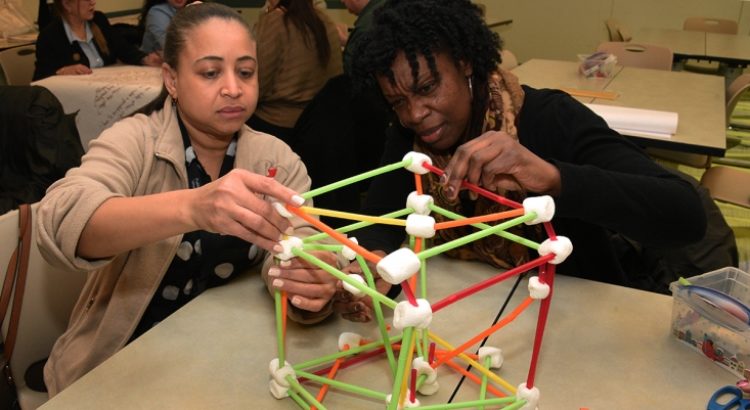
What makes autistic children different?
Autistic children have a different way of perceiving reality, and their senses often work in a different way than you might expect. This means that children on the autistic spectrum might not remove their sweater if it’s too hot in the classroom or lower their voice even though they speak too loud or even shout during class. Every child with autism is different and unique and teachers should be familiar with the child’s character and habits before they introduce them to the rest of the class. Some children are nonverbal while others are loud, many are highly intelligent and have an extraordinary gift for specific subjects or topics. Labelling them as completely different is definitely not an option because, with appropriate care, these children could really use their potential and make progress.
Use teaching methods which support their strengts

Just like children who aren’t on the spectrum, autistic children have different strengths and weakness, yet theirs are a bit more extreme. They might be capable of extraordinary things, having an outstanding talent for math, arts, or music, but at the same time, they might be incapable of spelling their name correctly. This is why you should apply teaching techniques which support their talents rather than focus on improving their bad pronunciation. If you need help understanding your autistic students, you can always reach out to Behaviour Zen and ask their professional help and opinion on the matter. You shouldn’t try to prevent their repetitive patterns, or try to change their behaviour, as such approaches will only cause them to become anxious, angry, or even provoke acts of violence.
How to accept stimming
Repetitive patterns that some autistic children are prone to are called stimming (short for self-stimulation) and these are natural for some autistic children. The repetitive motions, actions, and sounds they make help them stay calm and they find it comforting. These patterns vary:
they could be flapping their heads, spinning, shifting their weight, running back and forth, pacing around, or rocking while sitting in the same spot. Although this kind of behaviour might be distracting for you and other students, you have to find a way to accept it and to explain to the other students that it helps the child feel better. What is good about it is that these repetitive patterns seem to occur always at a similar time so you could organise your class around them. This way, autistic children are going to be more included.
How to remain calm

When autistic children are throwing a tantrum, it is important to stay calm and not to change your behaviour. Your body language should remain casual and natural and you shouldn’t be raising your voice. Sometimes you will have to talk to the child in private, away from the class, but it will help them understand better what you want and need from them. When talking to autistic children, use simple language and keep your sentences brief, as it will be easier for them to process and understand what you want from them.
Give them time
Speaking of simple language and brief sentences, it’s often helpful to be very patient and not take too many steps with autistic children. Even though it’s not the same for everyone, most autistic children will appreciate if you take things slowly and not expect them to follow your train of thought immediately. When giving instructions, give them the simplest two-step instructions you can muster, even if it means working with them longer than with the other children in the class. When you finish speaking to hem, give them a couple of seconds to process your instructions before they answer or ask you a question. When repeating things, don’t paraphrase, as it will take them longer to process this new statement.
The class atmosphere can be unpredictable when you’re working with autistic children, and the most important thing is to stay calm. Although it’s easier said than done, it is possible to keep control in these situations; short breaks are your best friends and don’t hesitate to use them often. When you see that things are getting out of hand, back down, have a short break, and try again. Patience is your best friend, and autistic children will love learning from you.
Fuente de la Información: https://thriveglobal.com/stories/5-things-every-teacher-should-know-about-autism/









 Users Today : 39
Users Today : 39 Total Users : 35460342
Total Users : 35460342 Views Today : 56
Views Today : 56 Total views : 3419084
Total views : 3419084